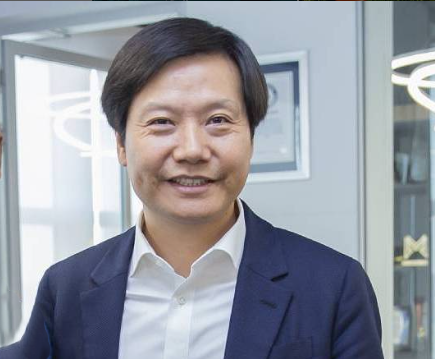Lei Jun’s incredible ascent to the top five richest people in China is neither coincidental nor fleeting. With a net worth of $42.6 billion as of May 2025, the founder of Xiaomi is part of a larger trend of tech titans who are effectively branching out from traditional verticals. Surprisingly, the transition from mobile hardware to electric vehicles has become remarkably similar among Chinese tech leaders vying for new dominance.
The initial reaction to Xiaomi’s decision to launch the SU7 EV lineup in March 2024 was cautious optimism. Now, a little more than a year later, Lei Jun’s risk has been proven correct not only by revenue but also by a 250% increase in share price, which has greatly increased investor confidence. Using a particularly creative strategy, Xiaomi was able to appeal to a wide range of customers by fusing affordability with high-end specifications.
| Full Name | Lei Jun |
|---|---|
| Born | December 16, 1969, Xiantao, Hubei, China |
| Age | 55 |
| Nationality | Chinese |
| Education | Wuhan University (B.A. in Computer Science) |
| Net Worth | $42.6 billion (as of May 2025, Forbes) |
| Role | Cofounder, CEO & Chairman, Xiaomi Corp. |
| Other Roles | Chairman, Kingsoft; Investor in JOYY Inc. |
| Company Value | $50.8 billion revenue (2024, Xiaomi) |
| Major Asset | 1810 HK Equity |
| Forbes Rank | 33rd richest globally |
| Richest Rank CN | 5th richest in China |
| Reference | Forbes Profile |
Analysts like Eric Wen of Blue Lotus Capital Advisors have pointed out the wider ramifications of Xiaomi’s rise in recent months. It has not only significantly outperformed the Hang Seng Index (27% versus 9%), but it has also rekindled confidence in Chinese technology at a time when investor sentiment had cooled globally. Xiaomi has established itself as a competitor in both mobile technology and intelligent automotive systems by utilizing recent developments in artificial intelligence, such as DeepSeek’s affordable model, which was introduced in January.
Even among top businesspeople, Lei Jun’s net worth has tripled since April 2024, when it was estimated to be around $10.9 billion. His net worth as of June 2025 is higher than it was at its peak of $23 billion in 2021, indicating a significant recovery following global economic downturns. He is now only a hair behind Zhong Shanshan, Ma Huateng, Zhang Yiming, and Colin Huang, all of whom are influential figures from a variety of industries, including e-commerce, entertainment, and beverages.
Xiaomi’s evolution reflects Lei Jun’s distinctively balanced philosophy: deliver performance without overpricing. This approach has proven remarkably effective in fostering long-term brand loyalty. Even though Apple and Samsung are still the industry leaders, Xiaomi has shown that it can compete on an equal footing with them thanks to its growing market share, especially in emerging markets. Lei has indicated Xiaomi’s willingness to challenge industry titans like Tesla, whose presence in the Asian market has been steadily declining, by setting a sales target of 10,000 SU7 Ultra units this year.
Xiaomi’s ascent signifies a significant change, supported by a highly effective supply chain and a customer base that places a high value on functionality over form. The brand, which was once written off as a cheap substitute, has evolved into a respectable innovator. For the larger Chinese tech sector, where export restrictions and international scrutiny had slowed progress in recent years, this change is especially advantageous.
Lei Jun, the former CEO of software company Kingsoft, has always demonstrated a visionary leadership style by streamlining processes and encouraging a startup culture among sizable teams. He continues to diversify as chairman of Kingsoft and an early investor in JOYY Inc., a livestream platform listed on the Nasdaq. He keeps an eye on software, digital media, and now AI-integrated automobiles. Although Lei’s approach seems more modest and understated, Elon Musk’s portfolio is similar to this diversified investment strategy.
Xiaomi is following in the footsteps of Apple and Huawei by entering the electric vehicle market through strategic alliances and well-timed moves. Lei Jun, however, accelerated the process and unveiled a complete lineup of electric vehicles just three years after announcing the plan, in contrast to Apple’s tardiness in EV launch. This was an incredibly clear display of discipline and execution.
The societal reflection of Lei’s financial rise is what makes it all the more fascinating. As the nation struggles with youth unemployment and manufacturing slowdowns, Xiaomi’s growth has rekindled optimism about tech-based prosperity and produced thousands of new jobs. Wealth distribution is just as important as wealth accumulation, especially in second-tier cities and tech hotspots like Shenzhen and Wuhan.
Xiaomi was one of the few tech firms that continued to run a stable supply chain during the pandemic, shifting to online distribution and stepping up efforts to integrate smart homes. Xiaomi significantly increased customer retention and cross-selling across product categories by foreseeing demand and improving its product ecosystem.
Lei Jun’s path serves as a lesson in consistent, long-term vision in a digital age where brand equity frequently eclipses tangible value. Without depending on hype, he was able to turn a smartphone brand into a multi-sector technology empire, proving the kind of remarkable durability that investors are looking for.
Lei Jun’s presence repositions China in the global race for EV supremacy, even as it intensifies. Xiaomi seems ready to influence current trends rather than just follow them. Its platforms, phones, and automobiles are becoming more and more connected thanks to artificial intelligence and proprietary software that greatly lowers device and service friction.


